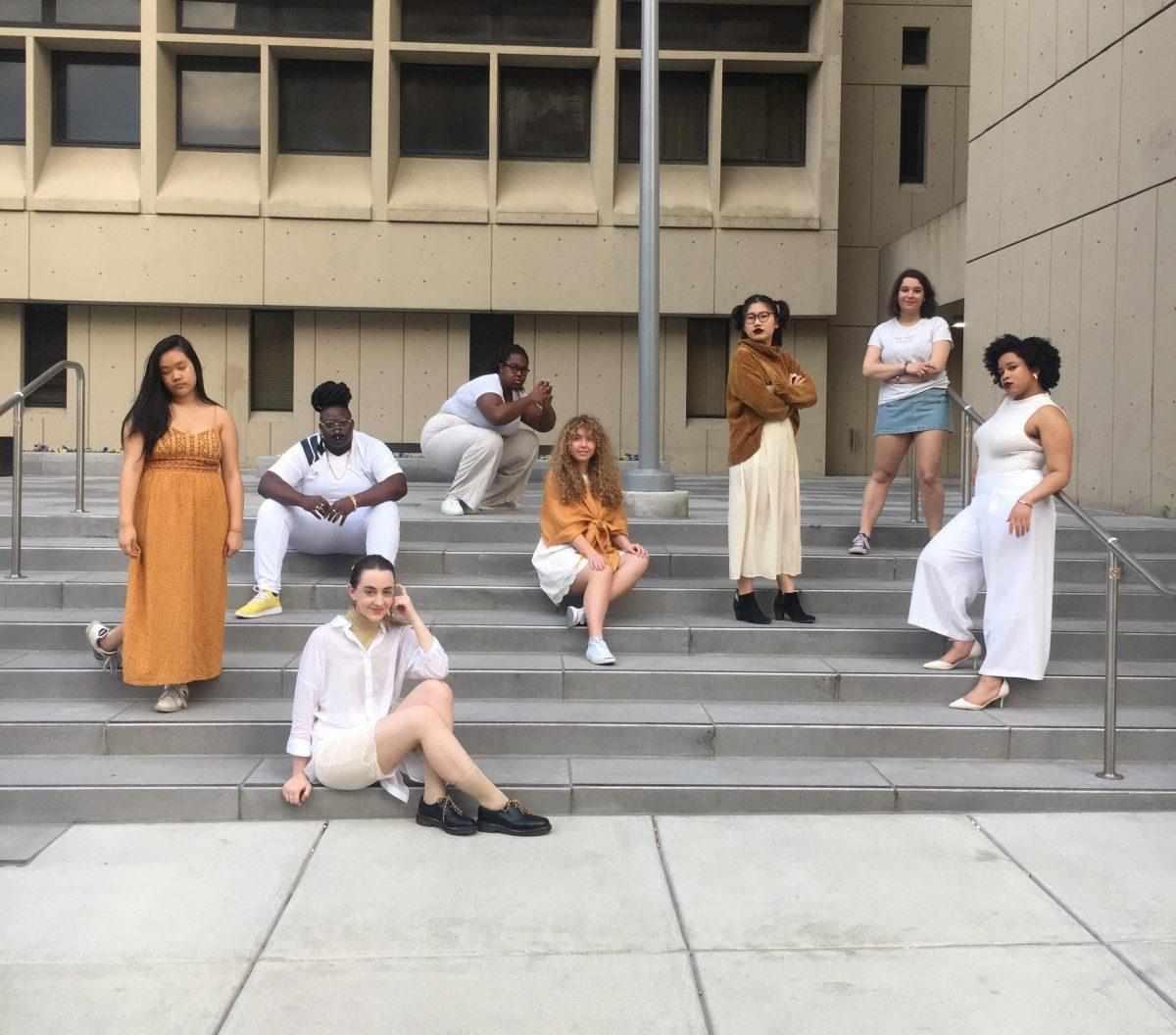“Slam is silly,” said Bella O’Connor ’21, one of the five members of Wellesley’s competitive spoken-word poetry team, which just placed fourth out of 66 teams from around the world in last week’s CUPSI—College Union Poetry Slam Invitational—competition. The team competed in Philadelphia on the weekend of April 6 and made it through qualifiers and semifinals with the highest score of all the teams. However, for them, slam poetry isn’t about how well their poems do in competition, it’s about sharing their art and sharing the love they have for each other as a team.
During the final round of the competition, Wellesley’s CUPSI team became frustrated. According to the rules of the CUPSI competition, they were not allowed to perform the poems they felt had the most powerful messages, as they had already performed those poems in semifinals. “In semi-finals, we had a very small crowd… compared to the other schools,” said Catrina Chen ’21. So, as they performed their best poems, almost no one saw them. In response, they decided to ignore the rules in favor of sharing what they believed was their best art. The team decided that, as O’Connor said, “Slam is silly” and that it would be better to prioritize their art over restrictive competition rules.
For two of the four poems the team performed in finals, they chose the same poems they had performed in semifinals rather than using new material. This choice meant that, while they scored the highest of any team in the competition, they ended up winning fourth place instead of first, as their prioritization of artistic integrity over obeying the rules meant their repeat poems were disqualified.
Wellesley’s team is the second team from a women’s college to even make it to CUPSI finals, Simmons College being the first. “We felt like we won when we made it to finals because only two women’s colleges have ever made it to finals in the history of the event,” said Mila Cuda ’21. That made their choice to repeat two of their semifinals poems easier because they already felt that they had achieved something just by being there.
In addition, in finals the team performed in front of the biggest audience it ever had, so its members decided that it would make sense for them to perform the poems about which they cared the most. “Everybody goes to finals to watch, and it’s open to the public,” Chen explained. “This is the biggest audience we’re ever going to get. We’ve spent so much time working on these poems, and the fact that we’re choosing the stories that we want to tell based on a couple rules of what they say you can and cannot tell the audience felt very ridiculous to us, and it felt very silencing, especially since it is so rare that a one hundred percent feminine team makes it this far. This is so rare, in CUPSI, that these stories are being told in this way,” she said.
The team consists of five members: Vei Vei Thomas ’21, Chen, Cuda, O’Connor and Sarah Nwafor ’20. They were coached by Sam Chin ’17, a founding member of CUPSI at Wellesley, and Porsha Olayiwola, a professional slam poet. The team began to work together in October, and the amount of time they’ve spent bonding and writing together is evident in the way they interact as a team. They all greet each other with hugs and quote snippets of each other’s poems to one another. They bought matching track jackets with their names on them and can often be seen wearing them around campus. Even the chants they use to cheer on their team show the care they have for each other. In one chant, one team member shouts, “I love you!” and the others all shout back, “We love you too!”
All of the team members will not be continuing in CUPSI next year. For example, Cuda will be leaving Wellesley for a semester to do a book tour for her new poetry book, which is coming out this summer. But the team bonding will stay with the poets in their future endeavors. Thomas said that this team taught her a lot about herself. “It means, to me, having a community of intellectual people who are equally as emotional… I think I learned a lot about the way that I view things,” she said.
O’Connor agreed. “I feel like joining CUPSI was a really transformative experience for me,” she said. “I never grew up with siblings or anything, so I was never able to bond with people or have this kind of unconditional, sibling-type love that I’ve had on this team. And I also feel like there’s been a lot of healing involved, through writing. And I feel like I got so much help that I didn’t realize that I needed.”
Other members of the CUPSI team echoed O’Connor’s sentiment, explaining that in the end, their vision of slam poetry was not about being judged or winning. It was about catharsis and learning to share your authentic self on stage.
For Nwafor, joining the CUPSI team meant learning about self-care. “I think self-care is a really big thing,” they explained. “Before CUPSI, I was doing all these activities that were really for other people, and it’s emotionally draining. I wasn’t doing anything…to make sure I was happy. I think that because CUPSI is really just something that’s for me, because I like poetry, it taught me that taking care of yourself is okay.”
The four poems the team chose for finals were called “Femmes,” “Moonlight,” “Fairy God Bitch” and “Wakanda,” the last two being the ones which were repeated. The team also made the choice to perform only group poems for finals, which is essentially unheard of in slam. As the team had grown to be a community, they chose to finish performing as a group, instead of selecting solo poems for finals performance. “We wanted to be the community we’ve been this whole time,” Cuda said.
And they wanted their voices to be heard. “For me, specifically, I think my words matter as a black queer femme, and my words aren’t heard,” Nwafor said. “And also, I feel like, if you have confidence in your work, and you know it’s beautiful, you want people to see it.”
Now, although the poems they chose for the finals may have cost them the winning title, they will get the biggest audience possible: some might be posted on Button Poetry, a popular YouTube channel for professional slam poetry videos.
Cuda said that their choice of poems was a deliberate choice to use their voices as femme poets within a male-dominated community. “Femmes have never been given a mic, given the space to talk for that long, been listened to,” she said.
Chen agreed. “For me, it was very much like, we were there trying to approach slam differently by just approaching it as ourselves. Like, trying to come as honestly and as authentically as we could was somehow already radical,” she said.






